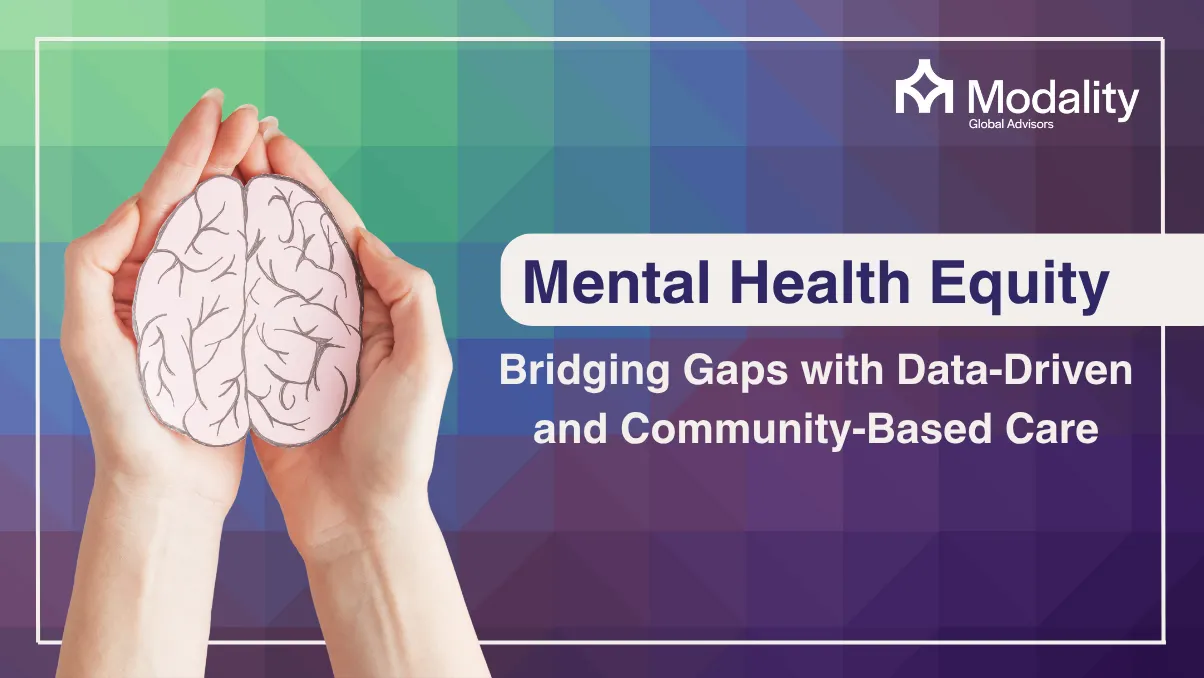Despite the fact that 1 in 5 adults in the nation experiences a mental health issue annually, less than half of them get the assistance they require. The problem is systemic rather than merely clinical. Inequity in an already tense mental health environment is exacerbated by persistent disparities in access, outcomes, and cultural relevance that affect marginalised people.
The Numbers Show the Equity Gap
- Black and Hispanic adults are 50% less likely than white individuals to receive mental health therapy.
- There is a 60–65% shortfall of mental health practitioners in rural areas.
- LGBTQ+ youth are more than four times as likely to suffer from depression and make a suicide attempt.
- More than 15 million Americans live in counties without mental health professionals.
- 45% of people with mental illness cite cost as the main reason for not receiving care.
The numbers are reflective of unheard stories and communities that have been left behind.
Causes Behind the Mental Health Divide
Geographic Inequities and Barriers
- 15 million Americans reside in counties with zero mental health professionals.
- In underprivileged communities, appointment wait times exceed 25 days.
- Telehealth initiatives in rural areas have demonstrated 200% improvements in service utilisation.
Systemic and Economic Barriers
- Medicaid pays 27% less for mental health care than private insurance, limiting provider participation.
- 14.2 million adults are unable to receive culturally competent treatment due to language barriers.
- Minority groups have 40% higher therapy dropout rates due to stigma.
Insufficient Culturally Appropriate Care
- Black and Hispanic psychologists make up less than 4% of the profession, despite representing 32% of the population.
- Traditional therapy often fails to address cultural nuances, leading to mistrust.
Two Elements of Mental Health Equity: From Crisis to Change
1. Data-Driven Methods
- Risk stratification models identify high-risk individuals before symptoms worsen.
- AI-powered outreach can reduce unnecessary ER visits by up to 45%.
- Integrated data systems allow providers to foresee trends and personalize treatment plans based on behavioral and environmental factors.
2. Community-Based Care Models
- Depression screening rates increased by 25% in FQHCs with integrated behavioral health.
- Telehealth and mobile outreach have boosted access by over 200% in remote areas.
- Digital tools and text-based therapy improve adherence among younger, minority patients.
Modality Global Advisors: Making Equity a Strategic Priority
At Modality Global Advisors (MGA), we believe equity is not just an ideal—it’s a measurable outcome. Through our healthcare consulting services, we help organizations build systems that center equity from strategy to execution.
We guide healthcare partners to:
- Use predictive analytics and localized SDOH data to map mental health deserts.
- Design culturally competent care models that address stigma and improve engagement.
- Integrate behavioral health into primary care and community hubs for a whole-person approach.
- Deploy digital tools and telehealth for scalable, personalized support.
- Align operations, policy, and reimbursement with frameworks for value-based equity.
The Path Ahead: From Shortcomings to Development
Equity in mental health is both a social necessity and a medical goal. With CMS and other payers now linking reimbursement to health equity outcomes, the time to act is now. Ignoring inequities is not just a moral failure—it’s a strategic one.
The future of mental health care is grounded in equity, community, and data. It’s time to move from awareness to action—creating frameworks that promote mental wellness for all, not just treatment for a few.
Join Modality Global Advisors in transforming mental health care—where healing has no borders and innovation meets inclusivity.

